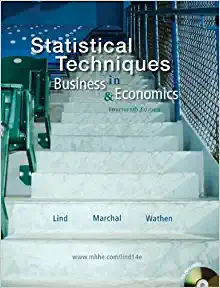


Developed by Steven Kupina, Professor of Economics, Conestoga College. Unauthorized use or uploading to external sites is strictly prohibited. UNIT 5 REVIEW QUIZ WITH ANSWERS 1. An increase in current disposable income leads to a. an increase in consumption only. b. an increase in saving only. c. an increase in both consumption and saving d. a decrease in saving but an increase in consumption. e. an increase in saving but a decrease in consumption. 2. Which of the following describes a possible effect of a fall in the real interest rate? a. The consumption function shifts downward. b. The saving function shifts upward. c. Both the consumption and saving functions shift upward. d. Both the consumption and saving functions shift downward. e. The consumption function shifts upward, and the saving function shifts downward 3. The component of aggregate expenditure which does NOT vary with the level of real GDP is known as a, autonomous expenditure b. planned expenditure Induced expenditure45. What does it mean for a country that is on a fixed exchange-rate system to have a balance of payments surplus? A) The quantity supplied of its currency on the international money market will exceed the quantity demanded B) The exchange rate is overvalued. C) There is an inflow of foreign currencies into the country D) The balance of payments surplus is matched by a balance of trade deficit. E) There is an outflow of foreign currencies from the country. 46. The country of Lancore, which was on a fixed exchange-rate system and had an undervalued currency, has just adopted a flexible exchange-rate system. Which of the following statements is correct? A) Lancores's currency will depreciate and its exports will increase as a result B) Lancores's currency will appreciate and its exports will increase as a result () Lancores's currency will depreciate and its exports will decrease as a reach DJ Lancores's currency will appreciate and its exports will decrease as a result 47. Assuming flexible exchange rates, which of the following would result in an increase in a country's exchange rate? A) The purchase by the central bank of its own currency. B) The purchase by the central bank of foreign currencies. () The sale by the central bank of its own currencies. D) The central bank decreasing the country's interest rates. E) The government imposing an export tax. 48. What is the long-term result of a central bank fixing an exchange rate below the equilibrium market rate? A) The money supply will have to decrease resulting in inflation. B) The money supply will have to decrease resulting in deflation C) The money supply will have to increase resulting in inflation. D) The money supply will have to increase resulting in deflation. E) The money supply will decrease but the price level will be unaffected. 49, Why are governments often reluctant to announce that they may devalue a currency? A) Because it will result in a higher exchange rate. B) Because devaluation is only possible with flexible exchange rates. () Because devaluation is only possible under the gold standard. D) Because it implies a lack of confidence which will discourage poople from bolding the currency. E) All of the above 50. Which of the following statements is true? A) Inflows of foreign investment are necessary to prevent future balance of payments deficits B) A current account surplus is always the result of a capital account deficit. () A current account surplus is always the result of a trade account surplus. D) A capital account surplus may cause outflows of foreign investment income in the future. E) All of the above.3. The balance of payments of a nation is an accounting statement of the international economic transactions, over some period of time (usually a year), of the residents (individuals, business firms, government units) of the country. Entries into the balance of payments are either credits (exports) or debits (imports). (a) In terms of the balance of payments, what does it mean to say that a country is experiencing a "capital outflow?" Specifically, what is "moving" between countries when a country experiences a capital outflow? What is being credited and what is being debited? Carefully explain. (b) Explain what is meant by the current account, the capital account, and the official settlements account. In what sense does the balance of payments always balance? In what sense does a deficit in the "basic balance" present a problem for a country that operates under a system of fixed exchange rates (as under a gold standard, for example)? Under what conditions would a "basic balance" deficit (sometimes referred to as a "balance of payments" deficit) not present a problem? Carefully explain












